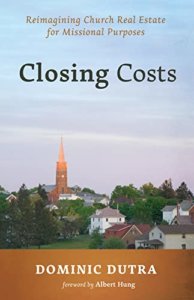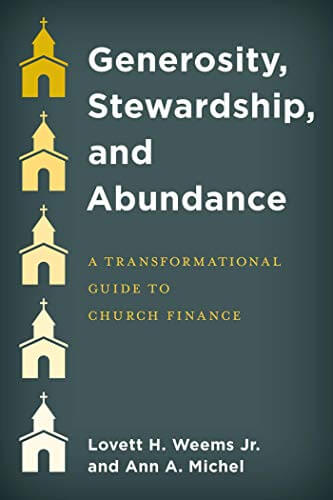Real estate expert Domenic Dutra outlines factors to be considered in determining whether selling church property might be a faithful course of action. The ideal selling situation, he explains, isn’t rushed by fiscal emergencies but is generated out of a careful planning process aligned with the ultimate mission of the church.
Chances are, if you’re thinking about selling church property, it’s because you realize that something about the life of your church that you or a previous generation envisioned is not going according to plan. Maybe attendance and giving are down, and you’re looking for funds to shore up the budget. Maybe that parcel of land that was an aspirational or visionary purchase a few decades ago doesn’t look like it will be needed, or maybe there aren’t enough resources to do with it what was planned.
For many pastors, the first clear signs are declining attendance and decreased giving. But the corresponding reality is that the church property likely is already too large — or too much deferred maintenance exists — for the church to turn around. If there are empty, unused sections of a church building, unoccupied parsonages, or entire lots that are barely used, the writing is on the wall.
The good news is that, if you are just noticing these realities, it’s not too late to put together a plan that will succeed in benefiting the mission of the church and the life of your community. But now is the time to reevaluate everything you are doing in light of your church’s mission and goals to make sure you truly have God’s desire to bless others at the center of your planning and strategy. If you think a property sale is in your future, consider your answers to these questions:
Is your property still an asset?
- Is your current property a drain on your congregation rather than a boon?
- Have budget woes caused you to defer maintenance on your property?
- Or does maintenance cost a large percentage of your budget that would otherwise be spent on something more closely aligned to your church’s mission?
- Do your most dedicated and devoted parishioners spend a lot of their time dealing with the building rather than ministering to people?
- Could selling your property free up their time so that they could be doing more valuable work for the kingdom of God?
The ideal selling situation is one that isn’t rushed by fiscal emergencies or wracked by heated emotions, but it is generated out of a long-range, careful planning process which aligns with and supports the ultimate mission of the church.
There are four ideal church candidates for selling.
1. Churches with more property assets and options
The easiest selling decisions are the ones made at churches with multiple property assets. Any sale is a momentous and challenging decision, both financially and emotionally. It can make it much easier and less fraught if it doesn’t seem like everything is riding on the disposition of a single property. A church with only its building is in a more difficult position than a church with a main building, an adjacent building for a school or functions, an empty lot, and a parsonage. Having a subdividable lot adds flexibility, and a partial sale is easier to pitch than a full one.
Any decision about the church building will elicit emotions related to the ultimate survival of the church community and will be wrapped up in memories related to that building. While churches with fewer assets may still need to sell, the situation is not ideal. Churches with many assets may not need to sell, although they are likely in a better position to do so.
2. Churches with in-demand property
Sales are easier to set up when property values in your area are high, and property is in demand. Is your church property in downtown New York? Good! You’re going to have a lot of people interested in buying your property. Is your church property in a rural area with declining population, declining industry and business, declining property values, and declining church attendance? If so, that is going to make a sale much more difficult.
3. Churches with unencumbered assets
The easiest church property sales involve the least encumbered properties. Determine if there are any mortgages or liens that might complicate a sale. Many churches are not owned by the local congregation but by the denomination with which they are affiliated, which can involve approvals processes. However, on the plus side, many denominations have very robust governance supporting the disposal of church-owned real property. Looking into your denomination’s resources and support processes as early as possible will save headaches later.
The kinds of sales possible may also be affected by the zoning of the property. Is the property zoned to allow new buildings or alternate uses (residential or commercial)? Typically, the fewer zoning constraints, the easier it will be to sell the property, though this should not be viewed as a serious obstacle. Though zoning boards are often known for the difficulties they pose to developers, many will approve zoning changes if presented with a compelling case that the proposed change will benefit the community.
Of similar effect is the presence of issues at the property resulting from deferred maintenance. A property with no deferred maintenance issues is easier to sell, but deferred maintenance is not an insurmountable obstacle. In fact, many churches that are stuck with a building with significant deferred maintenance are the very ones most in need of a sale. The good news is that even though such properties can be hard to market, sales are possible, and there’s no shame in walking away from a building for which you can no longer afford the upkeep.
4. Churches with property assets that are a net drain
This last category has less to do with ease of sale and more to do with necessity. If this category is the one you identify with the most, all hope is not lost. If it seems like more and more of your time, energy, and money is spent dealing with a building that feels more like a burden than a blessing and pulls you away from the ministry you are called to, you should probably sell. Buildings that are a burden to the ministry of a church should be sold if possible, and ownership transferred to another party if a sale is not possible. Someone else, even another church community, may want the building and may be blessed by it. But whether anyone else wants it or not, it’s just a building. The church is made up of people, not stuff. And if the building ceases to benefit people, then it needs to go.
Selling a church property is never anyone’s first choice. A church property sale should not be a Band-Aid for a church with a terminal diagnosis. Such a sale will not stem the ultimate failure of mission and execution, and serial attempts to prop up this body will continue to fail. But our calling is always to make the best, most faithful choices with the time, resources, and information we have available to us. And sometimes that means thinking about whether the most faithful course of action is to sell church property — not as a way of cutting our losses on a future that didn’t pan out but as a way of doing the best with what we have for the good of others and the kingdom of God.
 Adapted from Closing Costs: Reimagining Church Real Estate for Missional Purposes, available at Cokesbury and Amazon. Used with permission from Wipf and Stock Publishers: www.wipfandstock.com.
Adapted from Closing Costs: Reimagining Church Real Estate for Missional Purposes, available at Cokesbury and Amazon. Used with permission from Wipf and Stock Publishers: www.wipfandstock.com.
Related Resources
- Thinking of Redeveloping Your Church Property? Know First Where You Stand by Rick Reinhard
- Leveraging Church Property Can Sustain Your Mission by Lovett H. Weems Jr. and Ann A. Michel
- “Leveraging Your Church’s Assets,” a Leading Ideas Talks podcast episode featuring Jacqueline Jones-Smith







